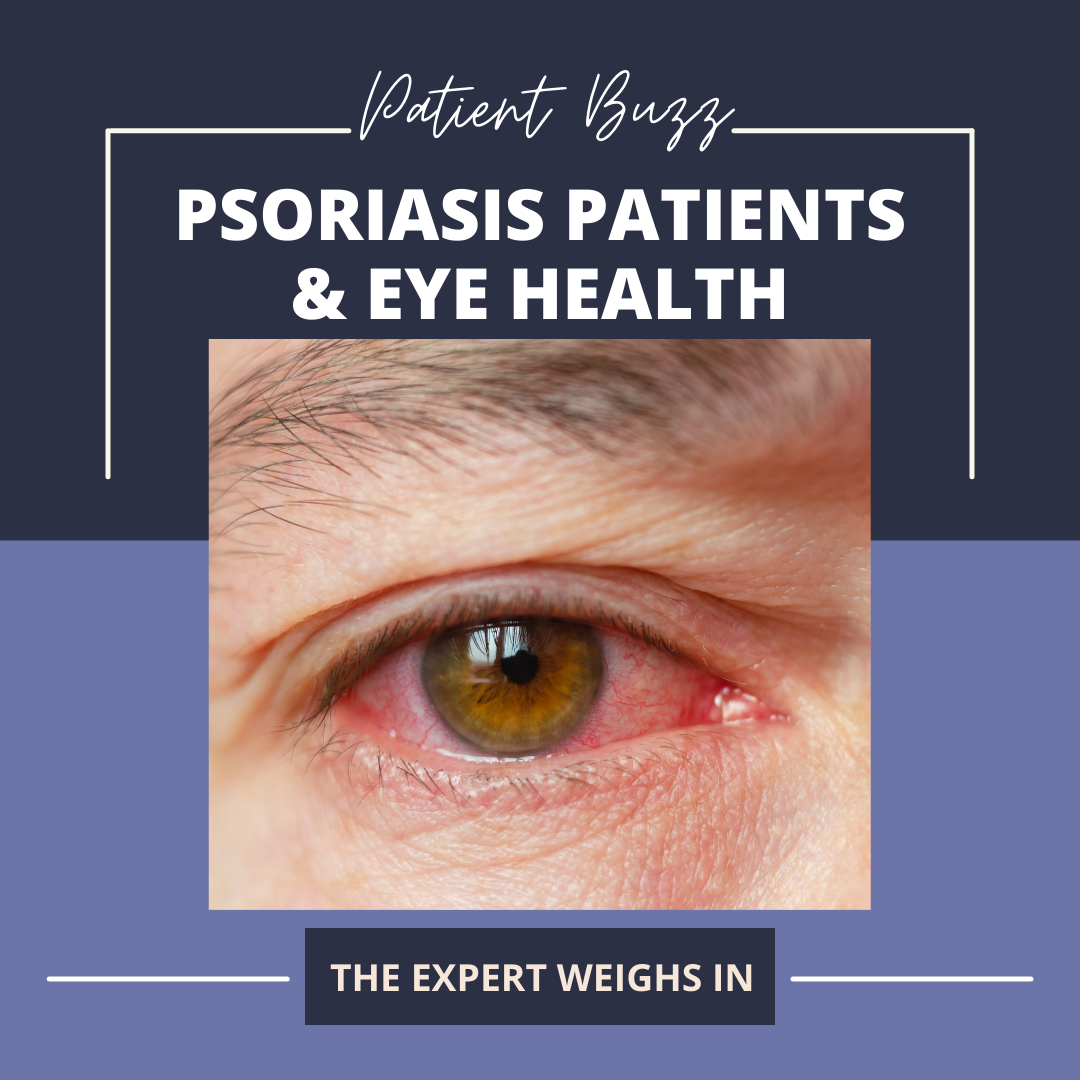Everyday Health recently wrote an article about eye health in people with psoriasis. According to the article, about 10 percent of psoriasis patients develop problems with their eyes, including uveitis, blepharitis, conjunctivitis and iritis.
For tips on how to best care for and advise psoriasis patients, I reached out to George Han, MD, PhD, director of clinical dermatology and teledermatology, and associate professor of dermatology at Zucker School of Medicine at Hofstra/Northwell. Dr. Han will be presenting, “Psoriasis Treatment Tips for the Busy Derm Practice,” at the ODAC Dermatology, Aesthetic & Surgical Conference.
The article mentioned that approximately 10 percent of psoriasis patients develop problems with their eyes. In your clinical experience, do you find this to be true?
It is difficult to put an exact number on the incidence of eye disease with psoriasis. Older studies had pegged the number at around 10% of psoriasis patients, although some studies put the number much higher, above 50%. The common issue is that these are relatively small studies and there is a great degree of background eye disease that drives the majority of the eye issues reported. When it comes to directly attributable risk of eye disease in psoriasis patients, the question becomes a bit harder to answer. One study from Turkey reported over twice the rate (above 50%) of ocular findings in 100 psoriasis patients as compared to 100 control patients. This may not, however, be generalizable and is somewhat of an outlier in the literature. In clinical practice, aside from uveitis with psoriasis and keratoconjunctivitis with atopic dermatitis, we rarely strongly consider eye findings or screen for them, which is what makes it difficult to ascertain a true number. However, enough studies have reported numbers in the 10% range that it is believable.
What are the most common eye conditions that you see in your psoriasis patients?
The most common eye conditions in psoriasis patients are the most common conditions overall. Cataracts, conjunctivitis, keratoconjunctivitis sicca (dry eye), and pinguecula (yellow spots on the conjunctiva) can occur, along with glaucoma and uveitis. With regards to uveitis, this is probably the most important consideration in psoriasis patients due to the overlap in pathophysiology, with increased Th17 polarization in both conditions. Importantly, both nationwide studies (including a Danish cohort of over 70,000 patients) and meta-analyses have proven the connection between uveitis and psoriasis, albeit with a modestly elevated odds ratio. Previous reports have linked uveitis with psoriatic arthritis, and especially in HLA-B27-positive patients. In any case, the connection is there and important to consider as early intervention can help protect vision.
What should dermatologists look for when examining the eyes of their psoriasis patients? Are there specific questions dermatologists should ask their psoriasis patients regarding eye health?
As it is already difficult enough to conduct an efficient visit, it’s probably not practical to add a laundry list of eye symptom questions to our checklist. It wouldn’t really make sense for us to dust off the old ophthalmoscopes from medical school for this purpose (nor would I, for one, have any clue how to use it properly). However, if one has time, basic questions about blurry vision, photophobia, eye pain or floaters may be a reasonable start (with a positive answer to any of these prompting a referral to ophthalmology).
What are the best ways to treat eye flares?
Treating the psoriasis with biologic/systemic therapy is often helpful for treating uveitis, but for other more common conditions such as dry eye or conjunctivitis, antihistamine eye drops or mild steroid eye drops may be quickly helpful in the short term while the patient awaits an appointment with an ophthalmologist.
When should dermatologists refer their psoriasis patients to an ophthalmologist?
Patient selection is very important to try to catch eye disease but not go overboard and refer every single mild psoriasis patient to ophthalmology. As previously noted, positive symptoms (blurry vision, photophobia, eye pain, or floaters) should elicit a referral to ophthalmology. With the aforementioned link to HLA-B27, of course any patient with known positivity should be referred to ophthalmology. The connection to garden-variety psoriatic arthritis is probably not strong enough to warrant a reflex referral, but for any patient with pustular psoriasis or axial disease/spondylitis, the association with HLA-B27 is much higher and a referral may be considered.
How should a dermatologist consider a patient’s eye health when deciding whether or not to prescribe systemic therapy?
Eye symptoms, like psoriatic arthritis, are important considerations when treating psoriasis. Uveitis is a leading cause of blindness or loss of sight among working-age people. Similar to psoriatic arthritis, it can be progressive and lead to permanent damage if left untreated. For someone with eye symptoms, an ophthalmology referral is an absolute must, and choosing patients to refer based on comorbidities, as outlined above, is also important. Systemic therapy, including biologics used in treating psoriasis (encompassing TNF-alpha inhibitors, IL-17 inhibitors, and IL-23 inhibitors), have shown promise in treating uveitis. A diagnosis of uveitis should definitely push us towards such treatments, as we may be able to modulate the progression of this serious eye disease.
How should dermatologists counsel their psoriasis patients about eye health?
Eye health is an important part of our general and routine health maintenance. It would be helpful to counsel our patients to see an optometrist regularly, just as they see their primary care doctor and dentist regularly. As with any aspect of health, prevention and early diagnosis/intervention can lead to better outcomes with potentially less aggressive treatments. We have an opportunity to make a positive impact on our patients’ lives and should take every opportunity to do so!
Did you enjoy this Patient Buzz Expert Commentary? You can find ore here.

